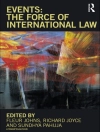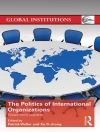Understanding Terrorism: Challenges, Perspectives, and Issues offers a multidisciplinary, comprehensive exploration of domestic and international terrorism that helps students develop the knowledge and skills needed to critically assess the expressions and underlying causes of terrorism. Martin explores theory and provides in-depth analysis in an accessible, engaging manner that helps readers develop the knowledge and skills they need to engage meaningfully with this robust course.
Tabla de materias
About the Author
Acknowledgments
Introduction and Rationale
Part I • Terrorism: A Conceptual Review
Chapter 1 • Terrorism: First Impressions
Chapter 2 • The Nature of the Beast: Defining Terrorism
Chapter 3 • Beginnings: The Causes of Terrorism
Part II • Terrorist Environments and Typologies
Chapter 4 • Terror From Above: Terrorism by the State
Chapter 5 • Terror From Below: Terrorism by Dissidents
Chapter 6 • Violence in the Name of the Faith: Religious Terrorism
Chapter 7 • Violent Ideologies: Terrorism From the Left and Right
Chapter 8 • Terrorist Spillovers: International Terrorism
Chapter 9 • Emerging Terrorist Environments: Gender-Selective Political Violence and Criminal Dissident Terrorism
Part III • The Terrorist Trade and Counterterrorism
Chapter 10 • Tools of the Trade: Tactics and Targets of Terrorists
Chapter 11 • The Information Battleground: Terrorist Violence and the Role of the Media
Chapter 12 • The American Case: Terrorism in the United States
Chapter 13 • Counterterrorism: The Options
Part IV • Securing the Homeland
Chapter 14 • A New Era: Homeland Security
Chapter 15 • What Next?: The Future of Terrorism
Appendix A: Map References
Appendix B: Prominent Persons and Organizations
Appendix C: Two Thousand Years of Terror
Glossary
Notes
Index
Sobre el autor
Clarence Augustus “Gus” Martin is a Professor and founding Chair of the Department of Criminal Justice Administration at California State University, Dominguez Hills, where he teaches courses on terrorism and extremism, criminal law, and the criminal justice system. He has served as founding Director of the School of Public Service and Justice. He also served as Associate Vice President for Human Resources Management, Acting Associate Dean of the College of Business Administration and Public Policy, Associate Vice President for Faculty Affairs, and Chair of the Department of Public Administration. He began his academic career as a member of the faculty of the Graduate School of Public and International Affairs, University of Pittsburgh, where he was an Administration of Justice professor. His current research and professional interests are terrorism and extremism, homeland security, and the administration of justice.Dr. Martin is author of several books on the subjects of terrorism and homeland security, including Understanding Terrorism: Challenges, Perspectives, and Issues (Sage, 2025); Terrorism and WMDs: Awareness and Response, Third Edition (with John Pichtel, CRC Press, 2025); Understanding Homeland Security (Sage, 2024); The Handbook of Homeland Security (with Scott Romaniuk and Martin Scott Catino; Routledge, 2023); Essentials of Terrorism: Concepts and Controversies (Sage, 2022); Terrorism: An International Perspective (with Fynnwin Prager; Sage, 2019); The SAGE Encyclopedia of Terrorism, Second Edition (Sage, 2011); Terrorism and Homeland Security (Sage, 2011); and The New Era of Terrorism: Selected Readings (Sage, 2004). He is also author of Juvenile Justice: Process and Systems (Sage, 2005).Prior to joining academia, Dr. Martin served as Managing Attorney for the Fair Housing Partnership of Greater Pittsburgh, where he was also director of a program created under a federal consent decree to desegregate public and assisted housing. He was also Special Counsel to the Attorney General of the U.S. Virgin Islands on the island of St. Thomas. As Special Counsel, he occupied a personal and confidential position in the central office of the Department of Justice; sat as hearing officer for disciplinary hearings and departmental grievances; served as chair of the Drug Policy Committee; served as liaison to the intergovernmental Law Enforcement Coordinating Committee as well as to the Narcotics Strike Force; and provided daily legal and policy advice to the Attorney General. Prior to serving as Special Counsel, he was a “floor” Legislative Assistant to Congressman Charles B. Rangel of New York. As Legislative Assistant, he researched, evaluated and drafted legislation in areas of foreign policy, foreign aid, human rights, housing, education, social services, and poverty; he also drafted House floor statements, Congressional Record inserts, press releases, and news articles; and he composed speeches, briefing materials, and legislative correspondence.Dr. Martin received his A.B. degree from Harvard College, J.D. from Duquesne University Thomas R. Kline School of Law, and Ph.D. from the Graduate School of Public and International Affairs at the University of Pittsburgh.












